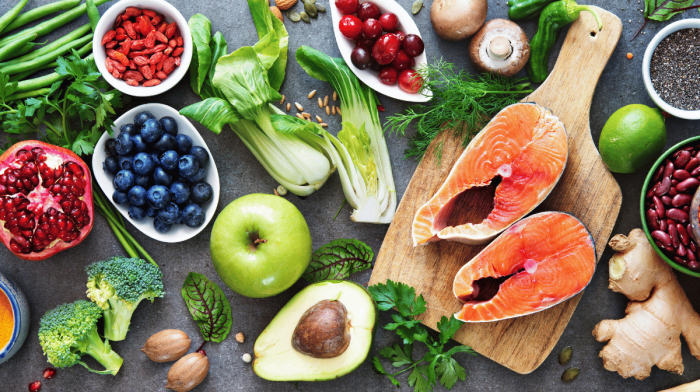What is Metabolism?
Metabolism is a chemical reaction that occurs within your body to create energy that cells, and organisms require to function1. Your metabolism is extremely important to your health, as it controls how much energy your body uses; therefore, affects your normal bodily functions. There are many factors that can affect your metabolism such as; age, diet, sleep and genes – but there are many ways you can naturally boost your metabolism.
In this article, we will be discussing 10 top tips to naturally speed up your metabolism:
- Eat at Regular Times
- Eat More Protein
- Get Enough Sleep
- Drink Water Consistently
- Exercise Often
- Reduce Stress Where You Can
- Taking the Right Amount of Vitamins
- Take Regular Screen Breaks
- Avoid Trans-fat and Processed Foods
- Eat a Healthy and Balanced Diet
How Does Metabolism Affect Our Wellbeing?
Metabolism is one of the most important chemical processes that occurs in our body. It is a complex process that turns the food and drinks we ingest, into energy, that our body uses to function 2. Even when you are resting, your metabolism doesn’t stop, it continues to keep your body moving for you to breathe, grow, repair cells, and circulate blood 3.
Signs Of Low Metabolism
When your metabolism is slow, your whole bodily functions are impacted. Your confidence, muscle growth, weight management and energy levels can be heavily impacted when your body isn’t processing the right nutrients 4.
Here are 5 signs of low metabolism:
- Weight gain or difficulty losing weight
- General tiredness
- Dry skin and thinning hair
- Difficulty concentrating
- An imbalance in hormones
10 Natural Ways To Increase Metabolism
Eat at Regular Times
Firstly, eating smaller meals more regularly is a great way to boost your metabolism.
“What time you eat could be just as important as what you eat when it comes to metabolic health,” says Jonathan Jun, M.D. 7.
Eating a healthy meal throughout the day can allow your body to distribute energy better but more importantly, researchers have found that eating dinner later can result in a 10% reduction in fat burning as when you’re asleep your body’s metabolic rate slows down 6. Studies have shown that those who eat later are more prone to high blood sugar, slower fat breakdown and increase stress hormones, all contributing to weight gain 7









